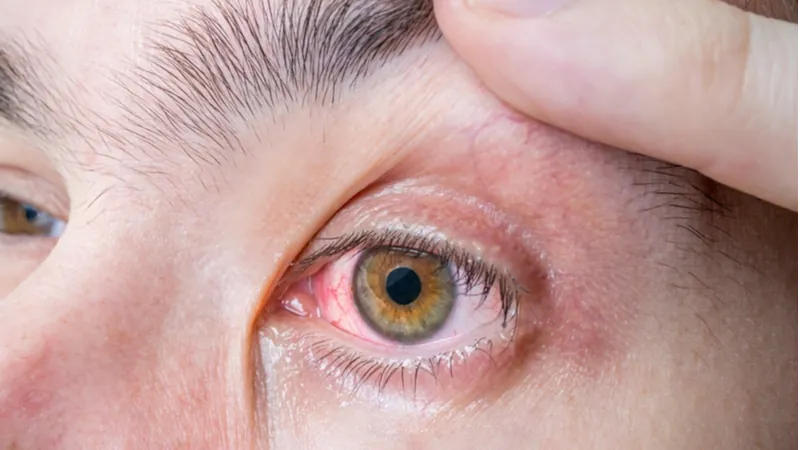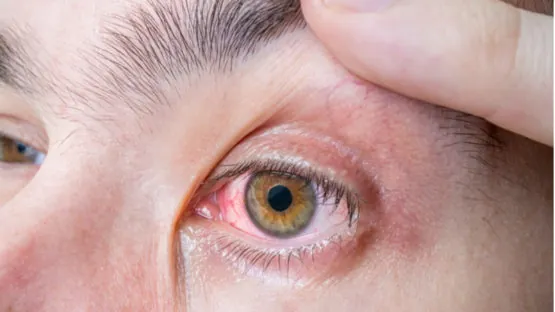Researchers publishing in GeroScience have found that carotid artery stenosis, a consequence of hypertension, is linked to a lack of blood flow in the eyes.
A disease that restricts blood flow to the brain
Carotid artery stenosis (CAS) is a dangerous condition that is strongly associated with stroke [1]. It occurs when plaque build-up occludes the carotid artery, which carries blood from the aorta to the head. Its risk factors include smoking, related blood vessel diseases, family history, excessive fats in the bloodstream, and, of course, aging [2].
This disease can result in eye problems ranging from transient vision loss to permanent blindness caused by a retinal stroke [3], which has the same fundamental cause as a cerebral stroke and a heart attack: an occlusion of a blood vessel that leads to tissue death.
Prior research shows that this plaque, when it builds up to an extent that more conservative approaches are no longer recommended, is best directly removed through a procedure known as endarterectomy [4].
A before-and-after study
For their study cohort, the researchers recruited 56 people who were slated to receive endarterectomy procedures. Both before and after these procedures, the researchers examined these patients’ eyes with optical coherence tomography angiography, which analyzes the retinal blood vessels in order to determine vascularization and blood flow. This non-invasive procedure allowed the researchers to closely examine cerebral vascularization without needing to conduct surgery or use any kind of chemical or radiological tracer.
The researchers made several interesting discoveries. Many variables that they assumed would be directly and strongly correlated with vascular density were not. Age, BMI, cholesterol, and aspirin use were among these non-significant variables.
Instead, the researchers found that hypertension was among one of the strongest correlations, as was the use of statins, which are drugs used to treat cholesterol buildup. While carotid artery stenosis and the surgery used to treat it were both significant, they were, surprisingly, less significant than hypertension and statins.
The study also found that kidney failure is very strongly associated with a lack of blood vessel density; however, prior research is conflicting, and the researchers could not determine if a lack of general vascularization is a cause or consequence of kidney failure. Estimated glomerular filtration rate, a measurement of kidney function, was also correlated with vascular density.
Conclusion
Hypertension and occluded arteries are normally associated with cardiac events, and for good reason; heart attack remains the world’s leading cause of death. However, these findings serve as a strong reminder that hypertension is a whole-body problem that causes restriction of blood flow to multiple organs, including the brain and the eyes.
While this surgery was shown to be at least somewhat effective in improving blood flow to the carotid’s downstream organs, it is still a significant procedure. No matter how old you are, if you want to live long enough to enjoy a world where there are effective treatments for age-related diseases, it is a good idea to eat a healthy diet and follow your doctor’s advice in order to minimize your risk of hypertension.
Literature
[1] Flaherty, M. L., Kissela, B., Khoury, J. C., Alwell, K., Moomaw, C. J., Woo, D., … & Kleindorfer, D. (2013). Carotid artery stenosis as a cause of stroke. Neuroepidemiology, 40(1), 36-41.
[2] Mathiesen, E. B., Joakimsen, O., & Bønaa, K. H. (2001). Prevalence of and risk factors associated with carotid artery stenosis: the Tromsø Study. Cerebrovascular diseases, 12(1), 44-51.
[3] Lawrence, P. F., & Oderich, G. S. (2002). Ophthalmologic findings as predictors of carotid artery disease. Vascular and endovascular surgery, 36(6), 415-424.
[4] Hill, M. D., Brooks, W., Mackey, A., Clark, W. M., Meschia, J. F., Morrish, W. F., … & CREST Investigators. (2012). Stroke after carotid stenting and endarterectomy in the Carotid Revascularization Endarterectomy versus Stenting Trial (CREST). Circulation, 126(25), 3054-3061.



